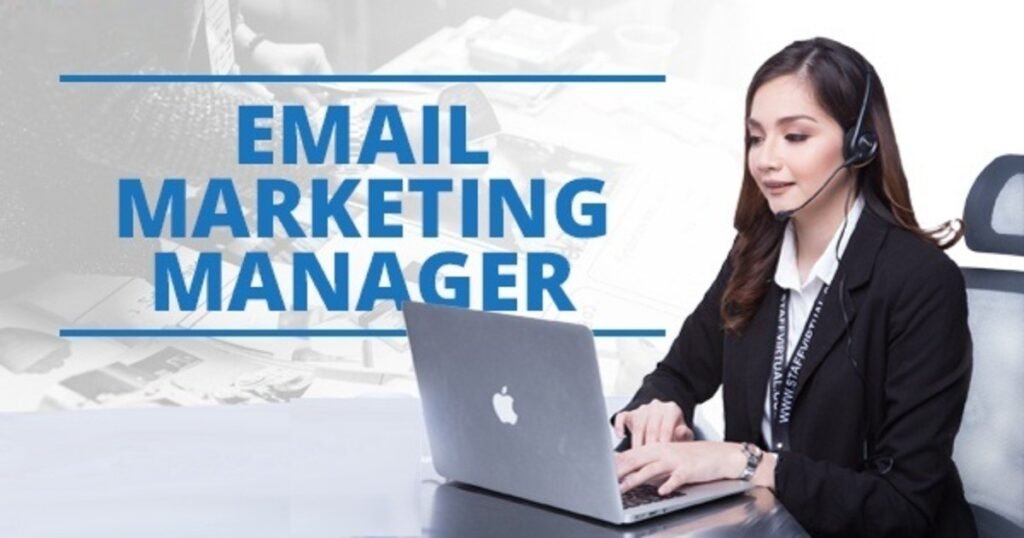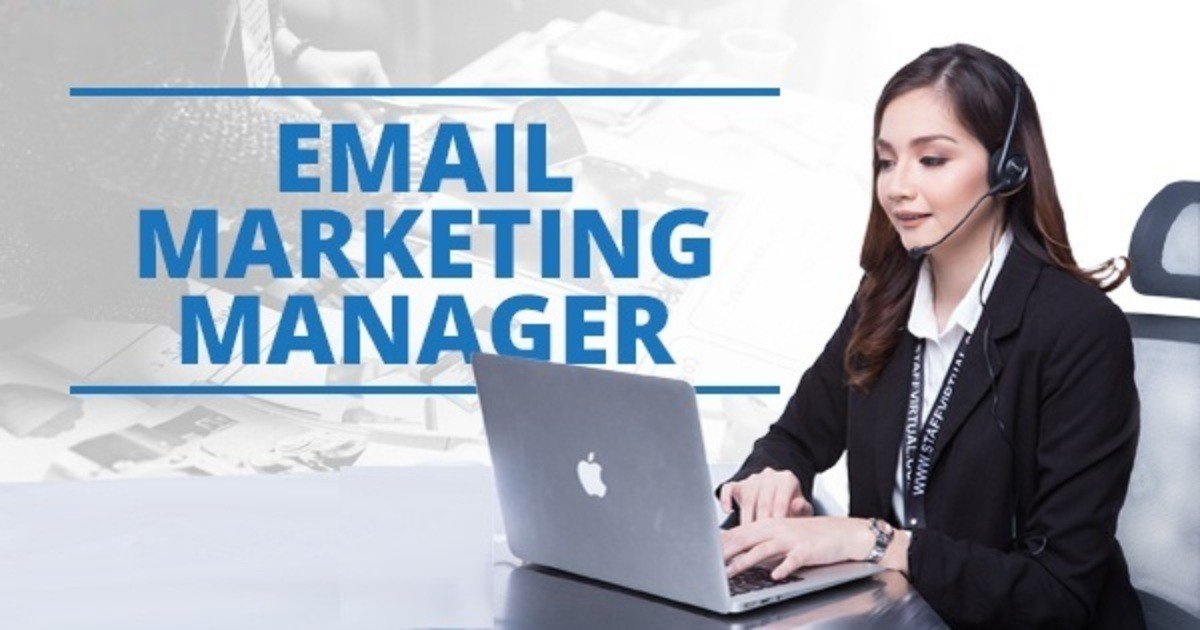Email Marketing Manager
An email marketing manager is a professional responsible for developing and implementing email marketing strategies to engage customers and increase business growth. Their main responsibilities include designing and managing email campaigns, segmenting email lists, and creating personalized content that resonates with target audiences. They analyze campaign performance through metrics such as open rate, click-through rate, and conversion rate, using these insights to optimize future campaigns. The role also includes ensuring compliance with email marketing regulations and best practices such as GDPR. Collaboration with content creators, designers, and marketing teams is essential to ensure coherent and effective email communications. The goal of an email marketing manager is to build strong customer relationships, increase brand loyalty, and achieve marketing objectives through effective email marketing efforts.

Importance of Email Marketing Manager
Email marketing is one of the most cost-effective and powerful tools in a marketer’s arsenal. With an impressive ROI and the ability to reach a wide audience, email campaigns are critical for engaging customers, nurturing leads, and driving conversions. An email marketing manager plays an important role in strategizing, executing and optimizing these campaigns to maximize their impact.
Role and Responsibilities of an Email Marketing Manager
- Campaign Strategy and Planning: Email marketing managers are responsible for developing a comprehensive email marketing strategy. This includes setting campaign goals, defining target audiences, and creating detailed plans to achieve desired results.
- Email Content Creation: Creating great email content is an important part of the job. Managers oversee the creation of compelling subject lines, persuasive copy, and visually appealing layouts that resonate with recipients.
- Segmentation and Personalization: Effective email marketing relies on segmentation and personalization. Managers use customer data to tailor email lists and content to specific audience segments, increasing relevance and engagement.
- A/B Testing: To improve campaign performance, email marketing managers conduct A/B tests on various elements such as subject lines, content, and calls to action. This helps to understand what works best and optimize the strategy accordingly.
- Automation and Workflow Management: Using email marketing platforms, managers set up automated workflows that send emails based on user behavior or specific triggers. It ensures timely and relevant communication with subscribers.
- Performance Tracking and Analytics: Measuring the success of email campaigns is critical. Managers use analytics tools to track key metrics such as open rate, click-through rate, conversion rate and ROI. These insights guide future campaigns and strategic adjustments.
- Compliance and Best Practices: Ensuring compliance with email marketing laws and best practices is essential. Managers stay updated on regulations such as GDPR and the CAN-SPAM Act to maintain legal and ethical standards.
Skills Required for an Email Marketing Manager
- Strategic Thinking: Strategic thinking is essential to developing effective email marketing plans that align with overall business goals.
- Creative Writing: Strong writing skills are essential to creating engaging and persuasive email content.
- Data Analysis: Analyzing campaign data helps in understanding performance and making data-driven decisions.
- Technical Proficiency: Familiarity with email marketing platforms, CRM systems, and basic HTML coding is beneficial.
- Project Management: Effective project management skills ensure campaigns run smoothly and deadlines are met.
- Attention to Detail: Attention to detail is critical to maintaining high quality standards and avoiding errors in email content.
Educational Background for Email Marketing Managers
Relevant Degrees:A degree in marketing, communications, business, or a related field is often preferred. These programs provide basic knowledge in marketing principles, consumer behavior, and business strategy.
Certifications: Certifications from recognized organizations such as HubSpot, Mailchimp, or the Digital Marketing Institute can enhance your credentials and demonstrate expertise in email marketing.
Future of Email Marketing
- Emerging Trends: Get ahead by adopting new trends early. This includes leveraging new content formats, platforms and technologies.
- The Role of AI and Machine Learning: AI and machine learning are changing email marketing. They can help personalize email content, improve delivery times and provide deeper insights through data analysis.
- The Growing Importance of Personalization: Personalization is becoming increasingly important. Tailoring email messages to individual preferences can significantly improve engagement and conversion rates.
- The Impact of New Technologies: Emerging technologies such as interactive emails and augmented reality (AR) are opening up new possibilities for email marketing experiences. Maintaining these technologies can provide a competitive edge.
- Sustainability and Ethical Marketing: Consumers are becoming more conscious of sustainability and ethics. Email marketing managers need to consider these factors in their strategies to appeal to socially responsible consumers.




